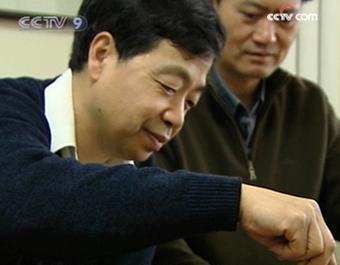As young people leave home for college or to start their careers, their parents are left to live on their own. These are sometimes called 'empty-nest' families. And now, a new generation of people, some still in their 40s, are joining the ranks of empty nesters.
Mr He's son will come back home from the US in a few days, after three years' study at the Georgia Institute of Technology. He talked about life without his only son.

Mr He said, "My wife and I couldn't get used to it at first, but we soon managed to get over it. We have re-discovered our former hobbies, such as calligraphy, music, reading and writing. These hobbies helped us to make many friends. Friendship is the best killer of loneliness. "
He loves sado, the Japanese art of tea-making. He often gathers with his friends at his home, sipping tea and showing off his calligraphy skills. He has published quite a number of poems.
Most empty nesters used to be people aged around 60 to 80. But China's high enrollment rate of young people in higher education over the last decade means that a growing number of people aged between 40 and 60 are now empty nesters.
In big cities, empty-nest families account for 20 to 30 percent, and in small towns, the percentage is as high as 40 percent.
Hao Maishou, former researcher of Tianjin Academy of Social Sciences, said, "An empty nest family is one with an elderly person living alone or with his or her spouse. People who are still only in their 40s and 50s need to adjust their mindset, establish healthy lifestyles, and more emotional support for each other."
Mr. He has learned to chat by internet video link, so that when his son is in the US, they can still stay in contact.
The three year's experience as an empty nester seems to have enriched Mr He's life.
(CCTV March 24, 2009)